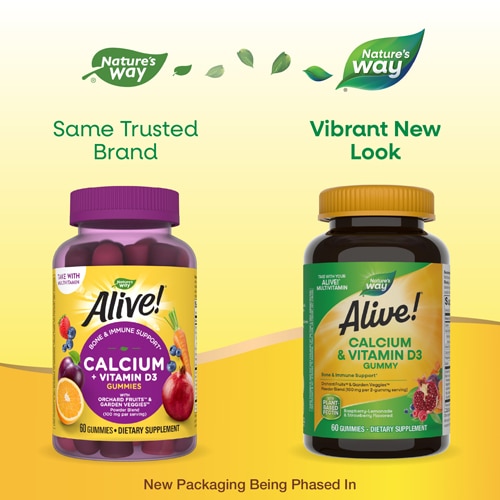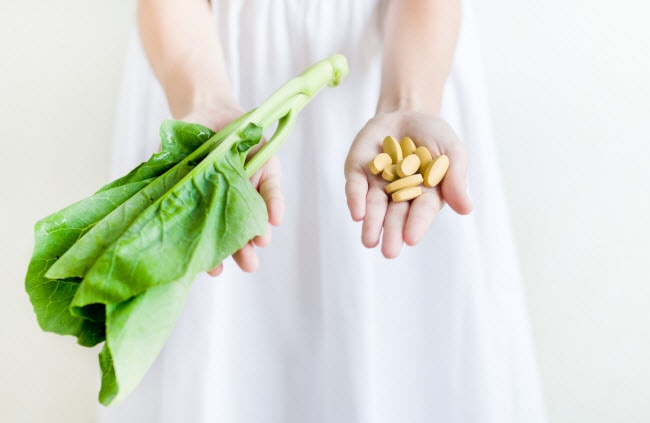It’s always best to get your vitamins and minerals from whole foods, but sometimes certain medical conditions, dietary lifestyles and other factors might lead to a deficiency, where you’ll need that extra boost. And while you should always consult a doctor before taking supplements to make sure you’re in need of those higher levels and to keep yourself safe, it’s still wise to learn about how those supplements work when in the presence of one another.
If you're taking vitamins, you’ll want to maximize absorption as best as possible, right? And what’s more, you really don’t want to sabotage absorption, causing you to miss out on benefits and simply waste your dose. These are the best nutrients to pair together and to avoid taking within an hour of each other in order to boost efficacy and reap the nutritional rewards.
Even if you’re simply taking one supplement from the pair, or you just want to play around with food combinations to improve absorption, these tips will make sure you’re getting as many of those nutrients as possible.
Nutrient Absorption Guidelines
Pair: Iron + Vitamin C
Taking iron and vitamin C together helps boost iron absorption, which can be really helpful for vegetarians and vegans especially who might be lacking in this rock star nutrient. (Iron is more readily available in animal protein.)
“Basically, vitamin C captures non-heme iron (comes from plants) in a way that is more absorbable by the body. So go ahead and top your spinach salad (loaded with iron) with tomatoes (chock full of vitamin C),” says Natalie Rizzo, MS, RD. You can also pair leafy greens with fresh lemon vinaigrette or you can add oranges or lemons to a green juice for citrus flavor and benefits. And if you’re taking an iron supplement, take a sip of OJ to swallow it down.
Pair: Vitamin D + Calcium
Both nutrients are really important for bone health, so you’ll likely want both regardless if you’re looking to prevent poor bone health or need to supplement to build bone density back up. So, you might as well pair them together and take in one sitting, says Rizzo. There are some supplements that combine calcium and vitamin D, so looking for one of those is a great idea.
“If you eat a ton of calcium, it will get absorbed on its own. But if you eat smaller amounts, vitamin D can help calcium be absorbed by the intestines, and it may help with the absorption of phosphorous, another bone building mineral, as well,” she says. So, when eating calcium-rich foods like Greek yogurt or cheese, enjoy grass-fed meat or eggs with it, too. And feel free to take a vitamin D supplement with a glass of milk instead of plain water.
Pair: Vitamin B12 + Folate
“Vitamin B12 and folate work together in the body for cell division and replication. Folate is actually a B vitamin and it depends on vitamin B12 to be absorbed, stored and used by the body,” says Rizzo.
Vitamin B12 is found in fortified grains, liver and other sources of animal protein, while folate is abundant in leafy greens. If you are vegan or vegetarian, a vitamin B12 supplement might be encouraged to avoid any deficiencies. When taking the supplement, take it with a green juice or take it while eating a fresh salad for lunch.
Pair: Vitamin D + Omega-3s
“Vitamin D is a fat soluble vitamin, meaning that it needs fat to be absorbed. Omega-3 supplements contain fatty acids from fish oil, so the fat in the supplement can help the body absorb vitamin D,” says Rizzo.
Plus, it’s way better for you than adding tons of butter to whatever you’re cooking or digging into a box of packaged chips or sweets (those are likely trans and saturated fat). Omega 3s promote a healthy inflammatory response in the body, says Rizzo, so they are good for our hearts, joint health, anti-aging and more.†
Avoid: Iron + Calcium
Watch out for this pair—calcium can inhibit absorption of iron in both food and supplement form. “Calcium inhibits the absorption of iron. Consuming 300 to 600 milligrams while also having iron can inhibit iron absorption,” says Rizzo. And while super small amounts of calcium won’t make a huge difference, food still does have an effect. (A small cube of cheese probably won’t do much, but don’t eat a whole bowl of cheesy pasta or pizza when taking an iron supplement!)
“Even eating iron-rich foods and taking a calcium supplement will mess up the absorption of iron. It’s not really a huge problem for people who eat meat (because they get plenty of iron), but it could be problematic for vegetarians, vegans or people with an iron deficiency,” says Rizzo. “I would advise waiting an hour,” she adds.
†These statements have not been approved by the Food and Drug Administration. These products are not intended to diagnose, treat, cure or prevent disease.




